Melissa Leong shares impact of new role on SBS medical documentary The Hospital: In The Deep End
Former MasterChef judge Melissa Leong has revealed how her new role on an Aussie TV show affected her life.
TV
Don't miss out on the headlines from TV. Followed categories will be added to My News.
Former MasterChef judge Melissa Leong knows her day jobs in food, fashion and broadcasting aren’t exactly brain surgery.
And the reason she knows that is because she watched highly skilled medical professionals perform actual brain surgery in the new documentary The Hospital: In the Deep End.
Leong joined fellow TV personalities, Logie-winning actor Samuel Johnson (The Secret Life of Us, Molly) and Gardening Australia host Costa Georgiadis, for the three-part series that takes viewers behind the scenes at Sydney’s St Vincent’s Hospital and spotlights the dedicated and industrious doctors, nurses and admin staff working in a public health system under pressure.
The filming was sandwiched between Leong’s final season on MasterChef and the first season of her spin-off show Dessert Masters, and she says the high-stakes, high pressure environments of the emergency ward, neurosurgery and reconstructive surgery put her own life and career in perspective.
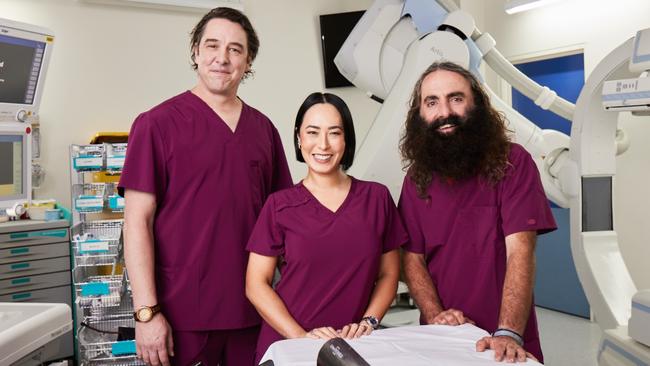
While she’s proud of what she does to entertain, inform and bring some joy and light into the lives of viewers, the experience also left her a little humbled and “really grateful for all of the different things that I get to do”.
“Totally,” Leong agrees. “I’ve been part of all sorts of stories over the last couple of years, being in the spotlight at this level, and a lot of it you have to approach with somewhat of a dubious attitude because we aren’t saving lives.
“We get to celebrate humanity and people’s stories, and that’s fun and beautiful and important in its own way, but you do need to put it in the context of the fact that it’s not brain surgery. I can literally say that now that I’ve watched someone have a tumour removed out of their head.
“Being able to witness actual brain surgery and see what goes into the experience for the doctor, the patient, the theatre staff – I think the more we collect a myriad of human experiences, the more we can put what we do and what we’re going through in context.”
The appeal of appearing in the documentary was two-fold for Leong. Firstly, Leong was attracted to “being slightly scared and pushed out of my comfort zone”, a place she says she learns and grows the most.
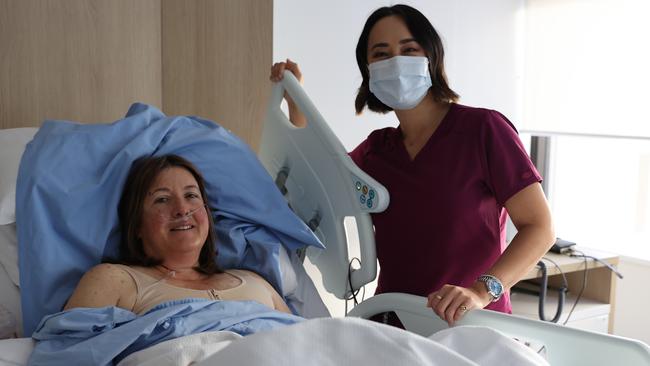
The second reason was far more personal. Leong’s mother worked as a nurse unit manager in the emergency department of a Sydney hospital – as well as in oncology and orthopaedics – for a decade, often on the night shift, and she wanted to experience what her mother’s life was like away from the family.
“My mum would tell me some stories of the different departments that she worked in,” Leong says. “There were some really heartbreaking stories about people discovering very late in the game that they had cancer and that they had very short period of time to live before they passed. You could see how that emotionally weighed on her because she’s a very empathetic person, but she’s also incredibly stoic, and I think I learned a lot of my character from watching how she dealt with things in life, and how she’s continues to deal with things in life.”
Leong says that although her parents would have been thrilled if she’d gone into medicine – her brother is a doctor and she calls herself the “rogue Asian” who chose a different path – there was never any pressure for her to do so. Rather, the greatest lesson she learned from her mother was “to take risks in life”.
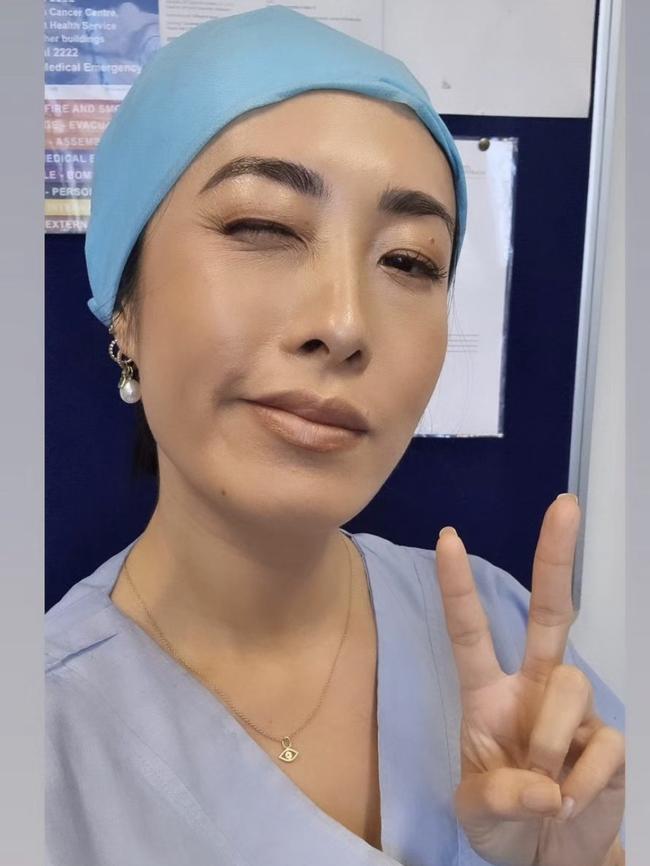
“Don’t wonder, go and do it because failure is where the greatest lessons happen anyway, and if that’s the worst thing that can happen to you, then that’s actually a gift,” says Leong, adding that watching her mother sacrifice sleep and a regular daytime routine gave her a work ethic that serves her to this day.
“My lived experience is being a first generation migrant child and I think most migrant families and the children of migrants understand the value of hard work, and the value of sacrifice in order to achieve something long-term,” she says. “Those are certainly virtues that I value from my upbringing.”
Despite her family connection – and the fact that her mother told her she fainted the first time she observed surgery – Leong says she went into her hospital experience with “open expectations”. What she encountered was a public health system that is clearly under strain, and while she doesn’t pretend to have the answers – and is loath to point the finger of blame – she hopes the documentary will educate the average viewer on “what happens on potentially one of the worst days of your life” and celebrate those who dedicate their lives to saving or improving the lives of others.
“I came away with a huge level of respect for people who can operate on such a high frequency in such a high stress environment,” she says. “It’s life or death, literally minute by minute, and to call that your world of work, to call that your office, is a huge undertaking and I have a tremendous amount of respect for every single employee – admin, nurses, doctors, the whole gamut. They all go through such a huge rollercoaster every single day.”
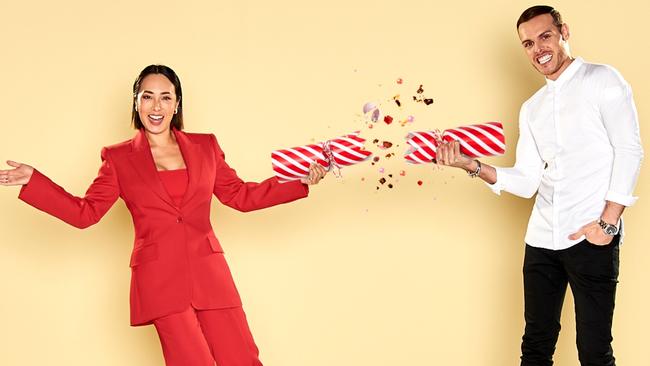
After describing the first series with French pastry chef and chocolatier Amaury Guichon as “an absolute blast”, Leong has already completed filming on the second season of Dessert Masters, which will screen later this year.
She’s happy to be part of the extended MasterChef family, but says she’s well and truly moved on from the much-loved cooking staple, which was rebooted this year after the untimely death of her co-host Jock Zonfrillo, with only Andy Allen remaining.
“I think they’re doing a tremendous job,” she says of new judges Jean-Christophe Novelli, Sofia Levin, and former contestant Poh Ling Yeow. “I’m so thrilled to see the show in such great hands.”
But, she says, the show itself is more important than any of the judges past or present, recalling a joke that Tom Gleeson made at the 2020 AACTA Awards, when Leong, Allen and Zonfrillo had just replaced original hosts Gary Mehigan, George Calombaris and Matt Preston.
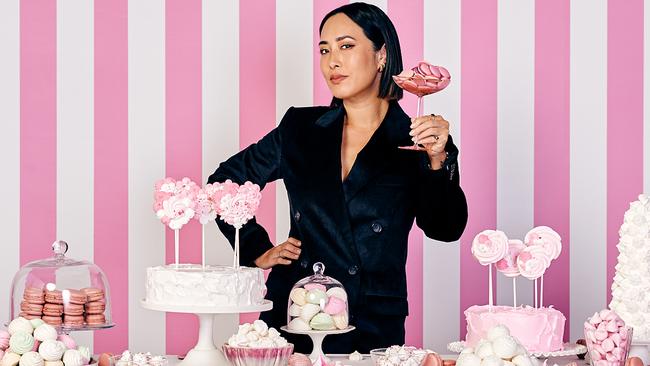
“’Was MasterChef’s ratings success due to the talent or the format?’ Spoiler alert, it was the format,” said the sharp-tongued comedian at the time.
“Tom in his own way is so apt in pointing out … that the format of MasterChef is evergreen,” says Leong, who was in the audience. “I’ve always said that hosts and judges will come and go but the beauty of what makes MasterChef so special is the conveying of people’s stories, the sharing and the community that happens when people who love food come together, and I think that’s great.
“Especially when I started the show in 2020, we were going through such a complex time with everything going on in the world, and to be part of a show that is inherently positive and there to bring brightness into people’s days is something that I will always take with me.”
The Hospital: In The Deep End airs from June 6 on SBS
More Coverage
Originally published as Melissa Leong shares impact of new role on SBS medical documentary The Hospital: In The Deep End




